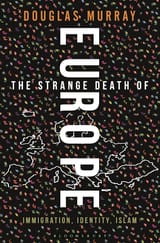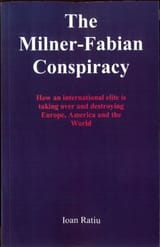>>24494724 (OP)
There really isn't any ideology governing the moment other than immense apathy and neglect, and misanthropic and deluded reactions to it that add to the nihilism spite instead of replacing it with anything noble. This is the history of all civilizations and all forms of governance, as they and their technologies become more complex, individuals become more alienated from material autonomy, and their material incentive becomes a stagnation in their own specialization, until contradictions pile too high and a new form must be erected. The European is concerned in the immediacy over the next meal and consistent shelter, not some abstract notions of a culture that has been dead since WW2. Have you met an European? They are the same stupid animals as anyone else; boorish, dull, and long removed from their childhood understanding that the world and their lives are beautiful. Anyone concerned about these imagined pasts does not have a meal on their table and/or has an excess amount of energy and ignorance they feel unable to apply towards anything, so they seek to recede into and propagate a vision of nostalgia and make the world submit to it. There aren't any good books solely on this phenomena because it is so simple and tedious, but it's a constant theme through the entire history of literature. If you want to understand any historical phenomena, the formula at the beginning of Brother's Karamazov for sin; that it purely is a manifestation of neglect, can enable you to understand all of humanity and its inadequacies if you properly understand it. Tolstoy's 'letter to the Chinaman', though I don't entirely agree with his solution (technology is a fire that can't be unlearned in my view), is a great illustration of the fundamental lack of vitality in civilization. Wordsworth's The Prelude also well speaks on this, as do his lyric Poems, or any of William Morris' poems, or really any great Romantic in any medium, as they first saw the death of vitality when it was thrown into the furnace and casted into the Industrial Revolution. If Europeans didn't care about their children being enslaved in factories to be crushed by presses and dismembered by gears in the 19th century, all just to create new technologies of destruction and pollution, why would many of them care of some foreigners coming to Europe for a bit of a respite from their slave fields?










